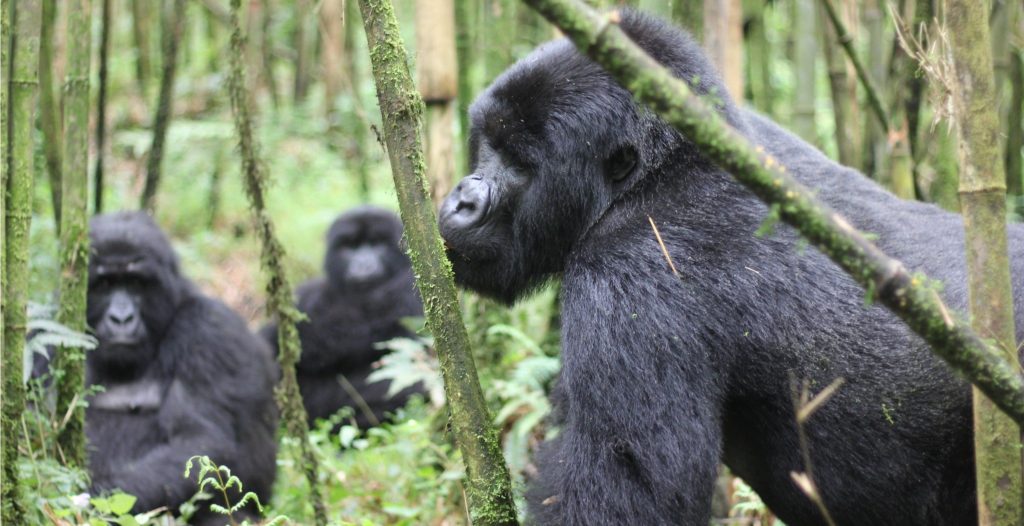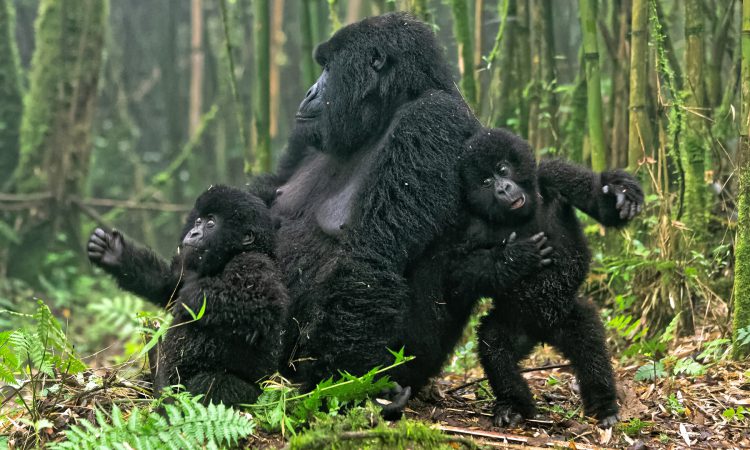Nkuringo gorilla group
The Nkuringo gorilla Group is one of the largest bwinid national parks in Africa where mountain gorillas are found. It is located in the Nkuringo section of the Bwindi impenetrable forest national park in southwest Uganda.
Ten habituated mountain gorilla families live in the park; the Nkuringo Gorilla Group is the only gorilla family in the Nkuringo sector and one of the ten habituated groups.

The local term for rolling hills is nkuringo. It took its name from the undulating hills where the group was initially observed. This group began to habituate in 2004.
Previously, Nkuringo, a silverback, led the Nkuringo Gorilla Group; he passed away in 2008. Two silverbacks succeeded him in assuming leadership roles, Rafiki and Safari.
Nevertheless, after seven months, his son Safari was able to seize control and assume the position of leader. When the female gorilla Kwitonda gave birth to twins Muhoozi and Katungi, the group welcomed a bundle of joy under his leadership. Sadly, Katungi did not survive to see his second birthday; he passed away at the age of one and a half from an illness.
The group caused a lot of issues for the locals who lived close to the woodlands because they were constantly seen wandering into the villages and feasting on people’s crops, banana plantations, and sweet potatoes.
Due to its actions, the group was primarily taken into consideration for the habituation procedure, which aims to acclimate mountain gorillas to human contact. The group became accustomed to receiving tourists, which raised the needs of the locals and allowed them to begin enjoying the benefits of both tourism and protection.

The gorilla tracking activity is the most difficult activity in all of Bwindi National Park. It requires more physical endurance and energy, but some people report feeling fatigued after this once-in-a-lifetime, exhilarating experience that includes meeting mountain gorillas.
The three-hour trip to see the Nkuringo Gorilla Group allows for only an hour of time spent with the group during their day of play, feeding, nest-viewing, and other activities in the jungle.
